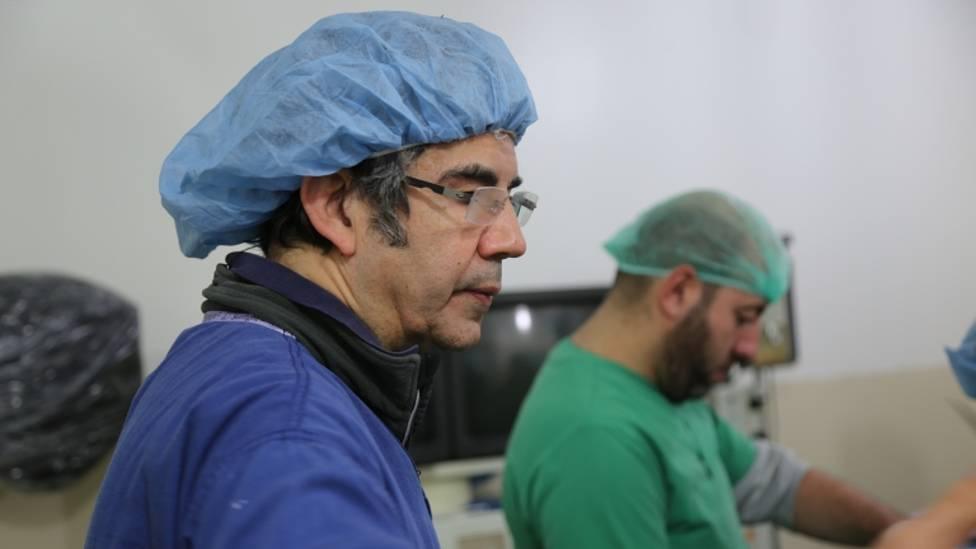Doctors train in Bolton to save lives in the Israel-Gaza war
- Published
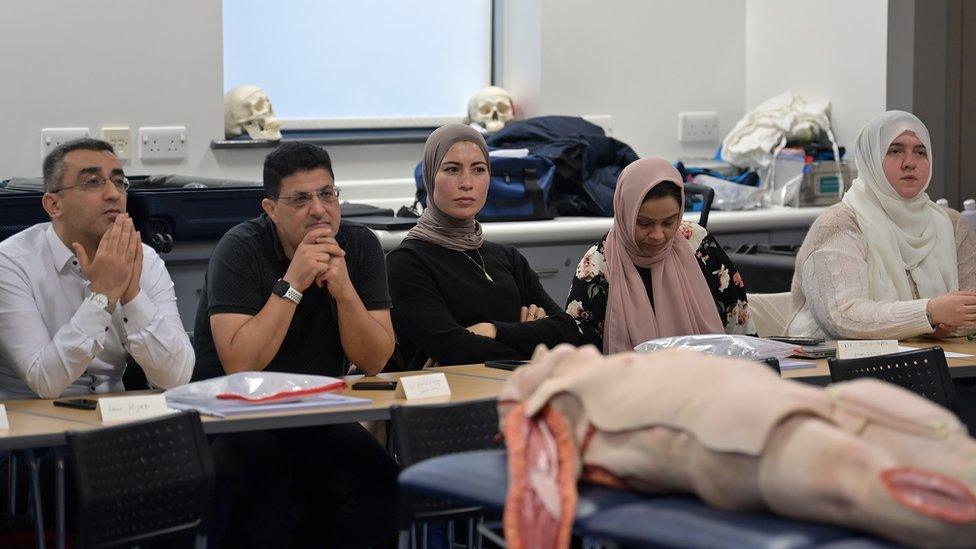
Doctors who plan to travel to Palestine have been training to treat patients in a war-zone
Doctors heading to the frontline of the Israel-Gaza war are learning the skills needed to save lives in a war-zone in the north-west of England.
Dr Israar Haq from Birmingham has been training with other surgeons at Bolton University to treat everything from gunshot wounds to blast injuries.
The war-zone surgery course is run by a charity started by renowned Welsh war surgeon Dr David Nott.
Dr Haq said he felt compelled to help those suffering in the war.
"If you have any grain of humanity in your heart you want to help," he told BBC Radio Manchester.
"Whether it's to just move some rubble out of the way so that the ambulances can get there, or whether it's to actually go in and physically help with operations and anaesthetics."
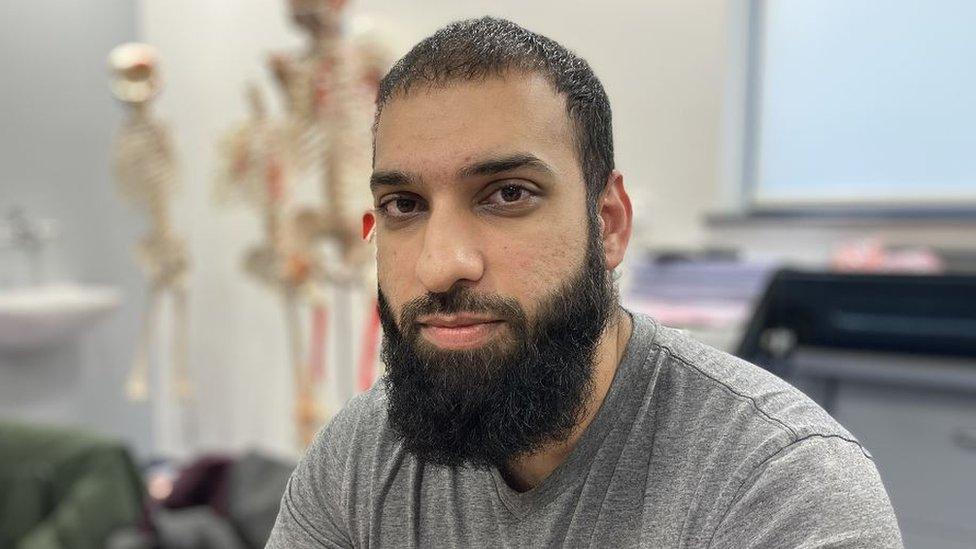
Dr Israar Haq said he wanted to help civilians suffering in the war in Gaza
He is one of 38 surgeons and anaesthetists from across Europe who gathered at a classroom in Bolton University to learn how to treat a range of injuries while working under the pressures of a war-zone.
More than 26,700 people have been killed in Gaza by the conflict triggered by the 7 October Hamas attack, according to the territory's Hamas-run health ministry.
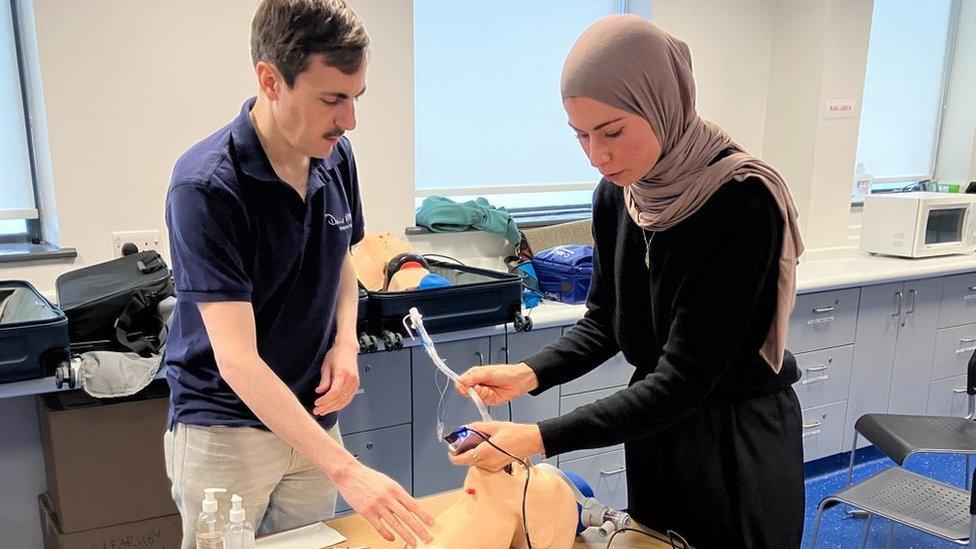
The medics are being trained to be multi-skilled surgeons who can work in conflict zones
Volunteer trainers from the David Nott Foundation have been using their hostile environment surgical training dummy, known as Heston, to show how common war wounds can be managed.
The charity's chief operating officer, Tim Law, said the job of the course was to "prepare them to deal with the really traumatic experiences they will come across".
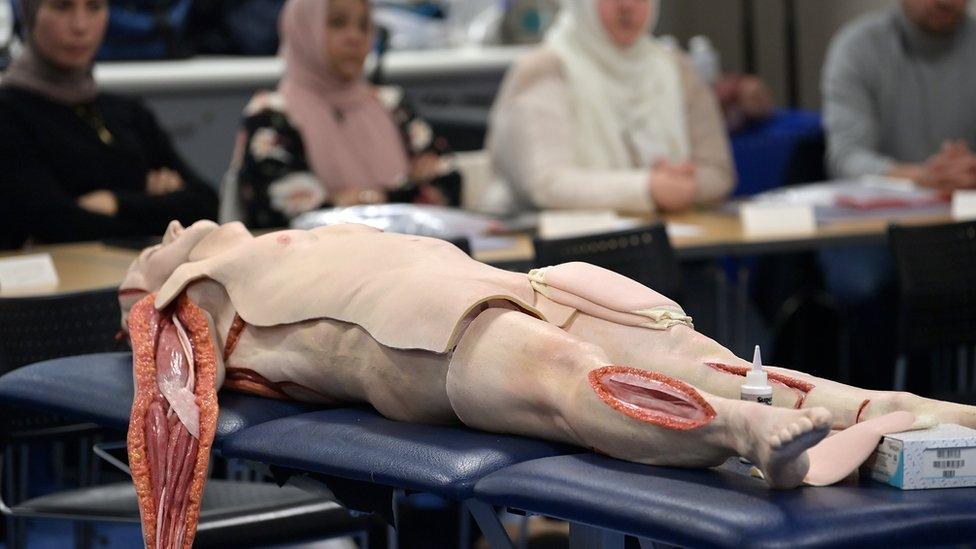
A dummy featuring common war wounds has been used as part of the training
Rebekka Troller, a consultant who works with the charity, said the aim was to give the doctors the skills to "do damage control, save lives, be the first response, and stabilise a patient before they can be transferred".
The trainer, who has recent experience working in conflict zones in Cameroon, said medics in war zones needed to prepare for "all sorts of situations".
"It's always a bit tense, usually the locals are really amazing, they're really helpful, and you work with a team, so you're not on your own, but you have to work under pressure."
Each of the doctors has made their own plans to volunteer in Palestine through organisations such as Medecins Sans Frontieres.
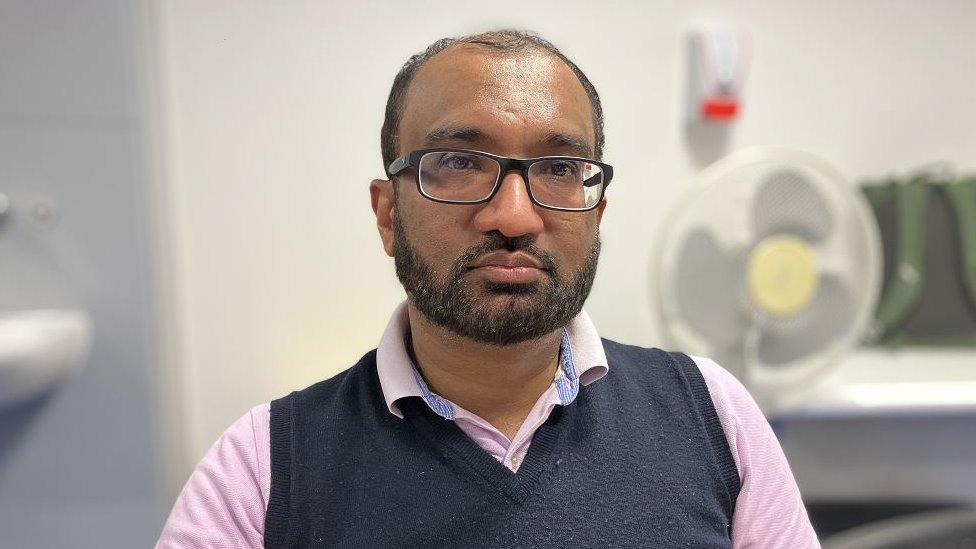
Hirron Fernando said he wants to try and save as many lives as possible
Hirron Fernando, a doctor from Glasgow, said: "We are living in a volatile world, these skills will help all who need them, and we are here all for humanity."
The doctor said he knew of colleagues who went to Gaza and were killed helping others.
"That's the price we have to pay, but I am willing to pay that price."

Why not follow BBC North West on Facebook, external, X, external and Instagram, external? You can also send story ideas to northwest.newsonline@bbc.co.uk, external
Related topics
- Published18 June 2022
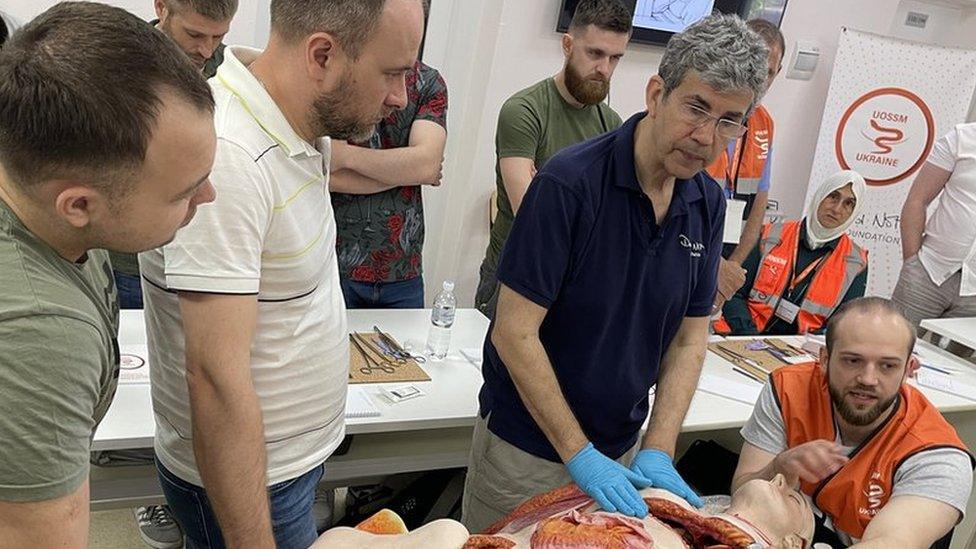
- Published24 April 2022
